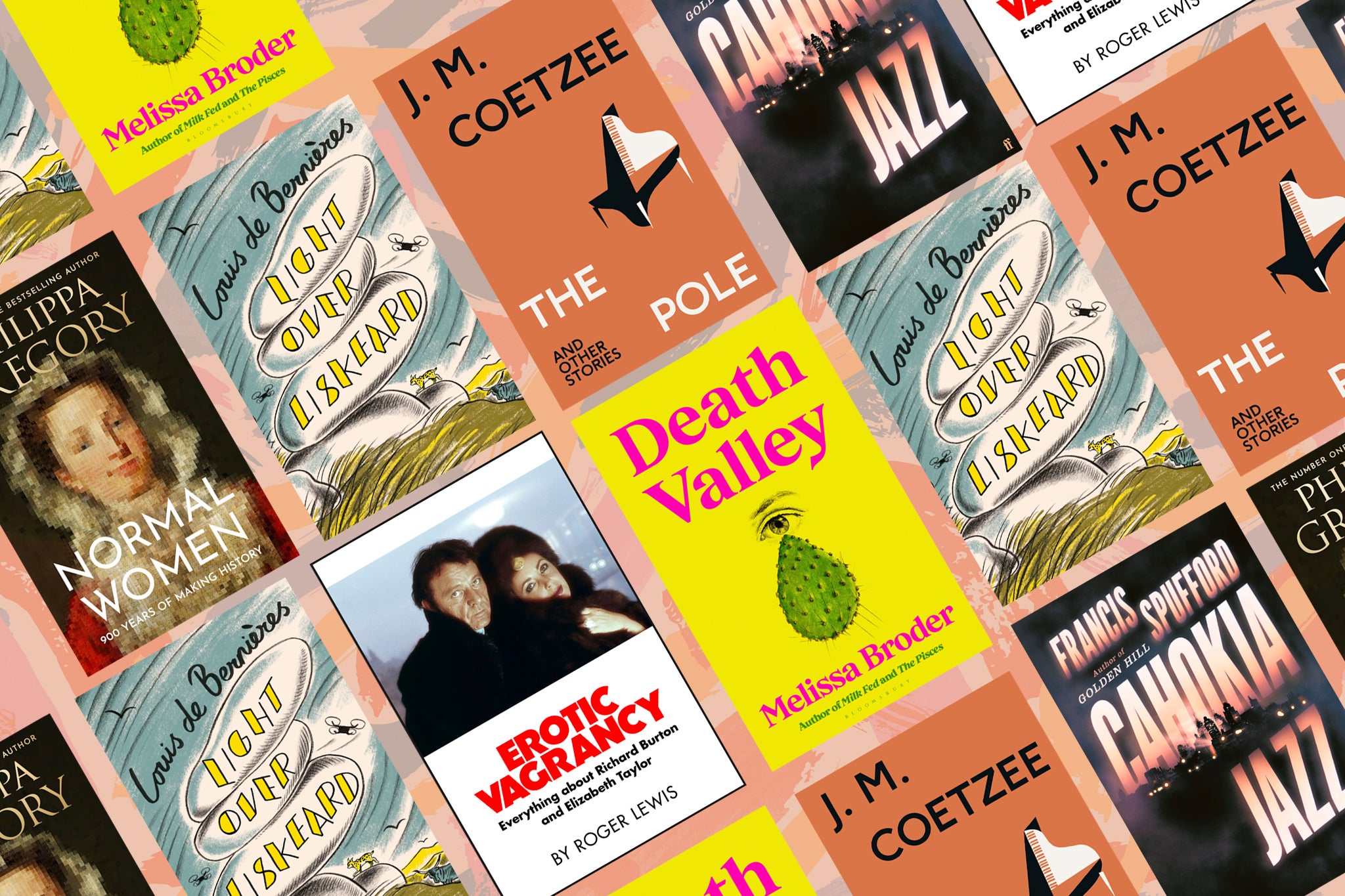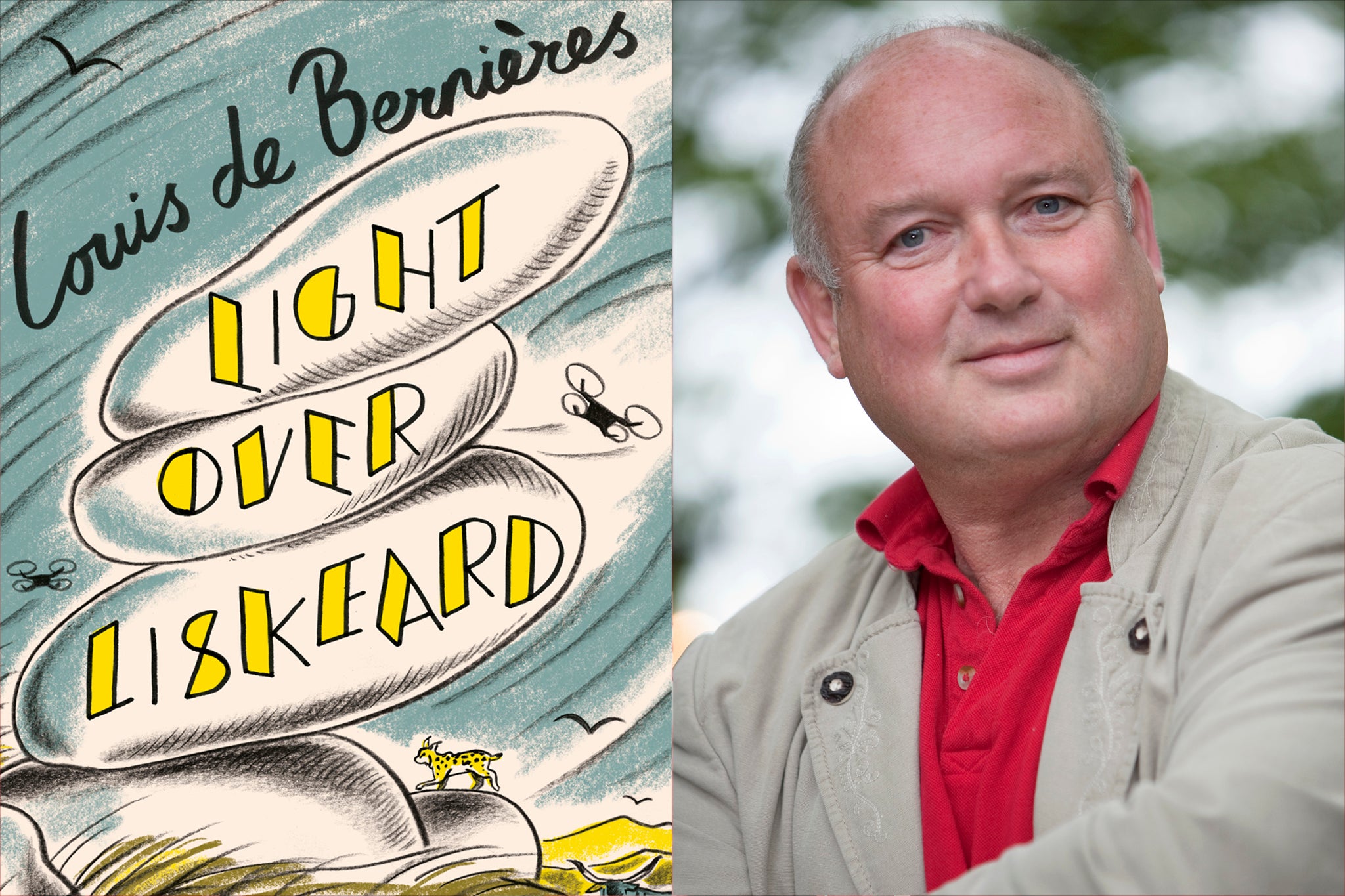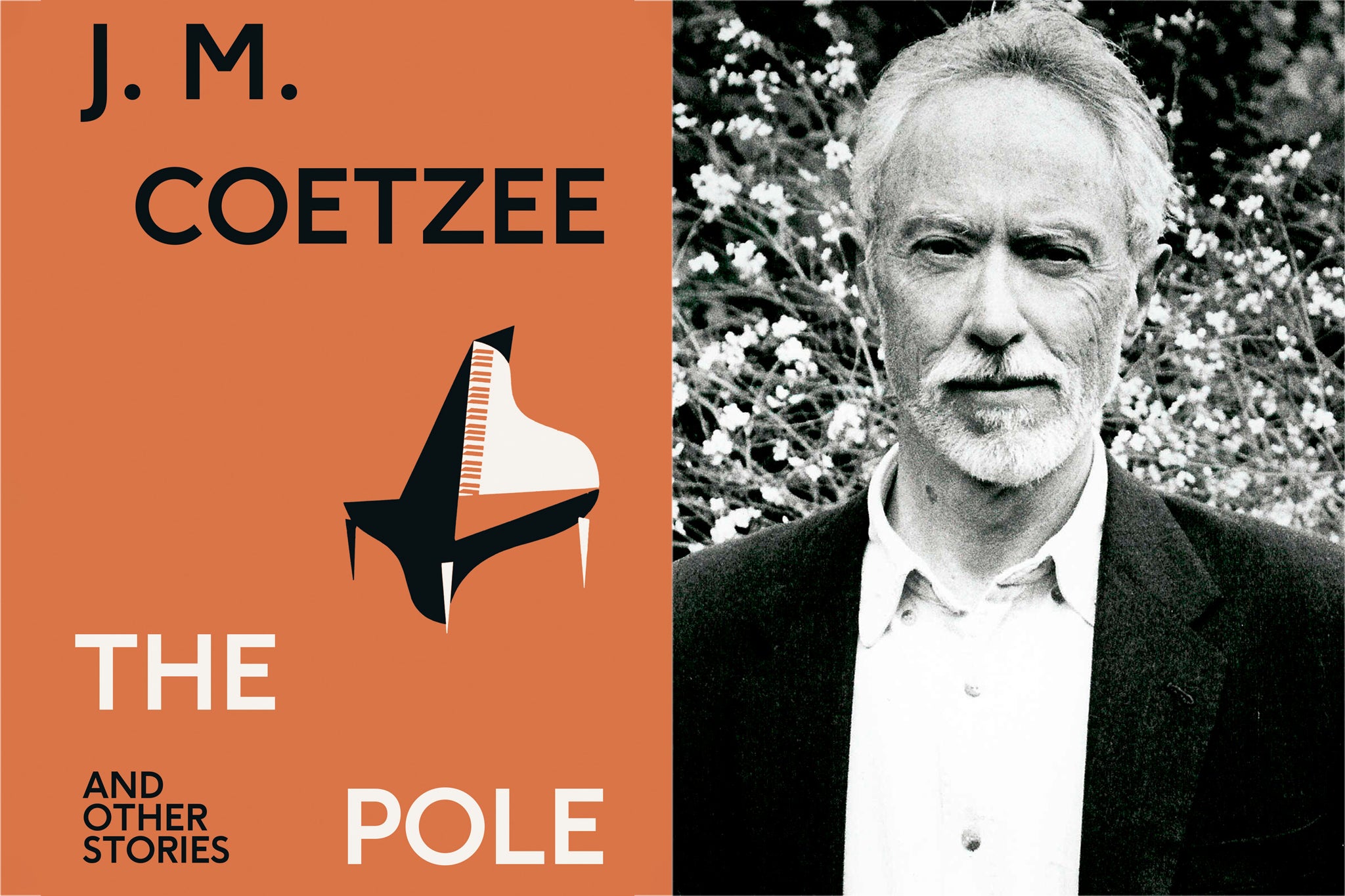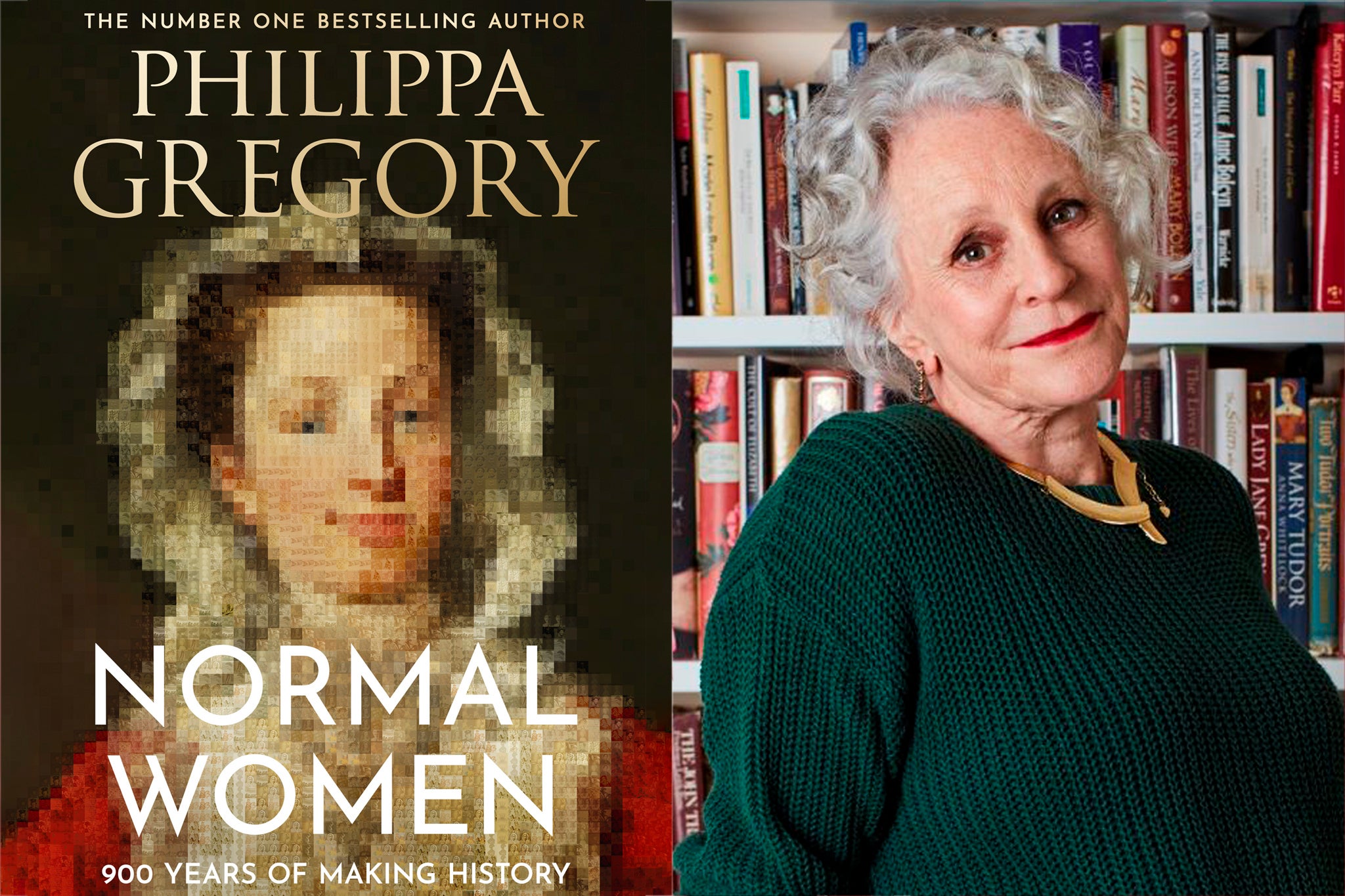Books of the month: From Melissa Broder’s Death Valley to Madonna’s biography
Martin Chilton reviews the biggest new books for October in our monthly column


Madonna, the best-selling female recording artist of all time, turned 65 this year. Her life is celebrated in a comprehensive, cuttings-heavy 850-page biography by Mary Gabriel called Madonna: A Rebel Life (Coronet). The account includes the tale of when the singer appeared on the London stage in 2002 and made a placard for her door calling herself “Judi F-cking Dench”. It also details the American’s time in England with husband Guy Ritchie. “Though a long-time vegetarian, she learned to shoot birds so she could share the activity with her husband at a storied estate they bought in the British countryside,” Gabriel notes. Ah well, a spell in the Wiltshire country set obviously does strange things to a music “rebel”.
My favourite memoir of the month, however, is Werner Herzog’s Every Man for Himself and God Against All (Vintage), which offers a fascinating glimpse into the mind of an original, anarchic filmmaker. His family tales are weird and funny – the hoarding aunt with only one set of undergarments, for example – and he gives revealing accounts of his professional career and acting roles on hit shows such as The Simpsons and The Mandalorian.
In the novel Julia, Sandra Newman reimagines George Orwell’s Nineteen Eighty-Four from a feminist perspective, through the eyes of Ministry of Truth worker Julia Worthing. In one tense moment, Orwell’s protagonist Winston Smith tells Julia: “I hated the sight of you. I wanted to rape you and then murder you afterwards.” Julia is a bold, disquieting novel.
Finally, Terry Pratchett completionists will be pleased with a collection of his rediscovered early short stories called A Stroke of the Pen: The Lost Stories (Doubleday), which include tales about Scrooge and Father Christmas. My favourite was the fable-like “The Money Tree”.
Novels by Francis Spufford, Louis de Bernières and Melissa Broder, short stories by JM Coetzee, a biography of Richard Burton and Elizabeth Taylor by Roger Lewis, and a history book by Philippa Gregory are reviewed in full below.

Cahokia Jazz by Francis Spufford
★★★★☆
The pulsating, gnarly opening of Cahokia Jazz features a butchered body on a roof, displayed like a human sacrifice, as two detectives squelch through a “a porridge of blood and snow” to examine the grisly scene. The complex relationship between the two murder squad detectives – Phineas Drummond and Joseph Barrow – is one of the many delights of Francis Spufford’s thrilling tale of murder and mystery, set in the fictional 1920s Mississippi city of Cahokia.
Spufford, prize-winning author of 2016’s Golden Hill, has written an imaginative alternative history of an American Jazz Age city. The splendidly realised past adds to the intrigue of a story set over six days, which blends fantasy and reality. Scattered within the plot are factual era-anchoring references like molasses, moonshiners, stogies and Model T automobiles.
There is a droll wit to some of the detectives’ reflections, especially in a riff about the “grift” of KKK bosses milking a cash cow by getting their racists followers to buy “flimsy white cotton at the biggest mark-up the market’ll bear”. Each chapter is launched with a remarkable historic photograph, none more startling than the one of Klan members, in their white fancery, riding a Ferris wheel.
Spufford’s writing is elegant, precise and animated (poor housing in the city had “grown like a fungus”) and in reimagining a key decade in America’s history, he finds relevant things to say about our own age of fake news, racism and high-level grifters.
Jelly Roll Morton and other jazz and blues references hum in the background of this marvellous, deep-layered tale of treachery and trickery.
Cahokia Jazz by Francis Spufford is published by Faber on 5 October, £12.99

Light Over Liskeard by Louis de Bernières
★★★★☆
As the systems of electronic control begin to come apart, a state security expert known as Q prepares for civilisation’s collapse and buys a dilapidated farmhouse on Bodmin Moor, Cornwall – a place where “the only people left were madmen and misfits”.
In Light Over Liskeard, the new novel from Captain Corelli’s Mandolin author Louis de Bernières, readers are offered a stark view of the state of the modern world in a “civilisation of ever-diminishing returns”.
De Bernières has created a rollicking story of legends, ghosts and the challenges of nature – with “its grotesque and impartial malice” – and a tale of love, desire and family dynamics. It’s all set against the backdrop of a terrifying threat of cyberwarfare. There is plenty of the author’s trademark humour, too, gleaned in jokes about London, food and the replica sexbots heading our way in this “age of unreality”. Home truths abound like moss in the wild Cornwell countryside and the book reveals the enduring pleasures of nature. As one character notes, “Bodmin’s different. It’s a parallel world down here.”
Light Over Liskeard by Louis de Bernières is published by Vintage on 12 October 2023, £20

The Pole & Other Stories by JM Coetzee
★★★☆☆
“The Pole” is the centrepiece of Nobel Laureate JM Coetzee’s new collection of short stories, taking up 147 of its 255 pages. It is also the most enriching of the six tales – a nuanced and thoughtful study of the offbeat romantic liaison between Beatriz, a 49-year-old Catalan woman, and Witold Walczykiewicz, a Polish concert pianist known for his offbeat interpretation of Chopin. The slow and complex way that Beatriz, married to an adulterous banker, gets drawn into a listless affair with a man old enough to be her father is skilfully pieced together. Both characters are dealing with what Beatriz calls “the cemetery of bad memories” and her brief affair is believable, even though she flinches at the sort of intimate contact that feels “like being touched by dry bone”.
Of the five remaining stories, several of which were published first in Italian or Spanish, the tale of a woman’s obsession with furry friends is hardly the cat’s pyjamas, although “The Dog”, which brings back Elizabeth Costello, a recurring figure in Coetzee’s fiction, demonstrates the author’s ability to write with an austere intellectual grace while conveying deep emotion. Themes of ageing, death, unrequited love and fractious mother-children relationships pepper stories about what one character describes as the reality of being, for good or ill, “together in the same leaky boat called life”. In these circumstances, Coetzee is a pretty nifty navigator.
The Pole & Other Stories by JM Coetzee is published by Harvill Secker on 19 October, £20

Death Valley by Melissa Broder
★★★☆☆
Anticipatory grief, impending loss, survival: these are key themes of Melissa Broder’s latest novel Death Valley, which is mainly set in the California high desert.
The central character is an unnamed fortysomething woman writer who leaves her favoured Best Western motel and gets lost hiking through the scrub. Wandering and anxious, she dwells on the fate of her father, who is in an intensive care unit after a car crash. Broder, author of Milk Fed (2021), writes with her customary slick humour and there are moments of real wit as “lost” author reflects on her family, especially her mother – “the bad omen expert”.
On balance, however, some of the jokes feel a bit forced and Death Valley will probably work best for fans of magical realism and those keenest on Broder’s energetically surreal tone. There is, among other things, a towering cactus portal.
Death Valley by Melissa Broder is published by Bloomsbury on 24 October, £16.99

Normal Women: 900 Years of Making History by Philippa Gregory
★★★★★
Did you know that there are more penises than English women in the Bayeux Tapestry? You’ll lose count of the number of things you learn about women and their skewed place in history as you read Philippa Gregory’s stunning Normal Women: 900 Years of Making History. The book reframes the past by telling the important stories of women that have been left out by so many male historians and diarists who, as she remarks, simply “amplified” themselves.
Gregory, a superb historical novelist, and acclaimed historian, covers the themes of work, health, wealth, sex, religion, politics, warfare, employment, class, slavery, sport, and education in nine sections, starting with “Doomsday 1066-1348”, when the “tyranny of men” was first solidified.
The book is full of surprises – in the 18th century “most grave diggers were women”, for example – and tells the story of our nation in a way that corrects the standard “airbrushed” version of history. Wat Tyler’s role in The Peasants’ Revolt is well documented, but Gregory details how the first acts of insurrection were actually staged by Joan Hampcock and Agnes Jekyn in 1381. Overlooked female rioting and rebellion is a strong theme of the book.
The illustrations are varied and interesting – the metal torture device called the “scold’s bridle”, which gagged women by depressing their tongue, beggars belief – and Gregory brings a light touch to her explanations. I enjoyed her joke about Paul Delaroche’s 1833 portrait of Jane Grey’s martyrdom being a version of “mansplaining death”.
Normal Women doesn’t try to pretend that the story is without complications or nuances. Gregory details the women who were fascists, class-ridden bigots, corrupted by greed or in denial about slave-owning pasts, for example, and she is clear that not every woman wants true equality for her sisters. In the 11 years Margaret Thatcher was prime minister, Gregory notes, the Iron Lady promoted only one other woman to her 22-strong cabinet.
One of the most depressing sections chronicles the Victorian era. The celebrated naturalist Charles Darwin believed that women were not only naturally inferior to men but that they would only “evolve to become more inferior”. His eminent peers did their best to keep women down. Victorian-era women were certified for “over-education” – they were encouraged to swallow tapeworm eggs to diet and could have a clitoris removed if their husbands caught them masturbating. “Dr Bennet, a famous English gynaecologist, advocated placing leeches on the vulva or inside the vagina,” Gregory records, noting that some leeches were eventually “lost”. As Gregory aptly puts it, “Who exactly was crazy here?”
Sexual violence towards women is a depressing constant in the 900 years covered in the book. One of the most disturbing stories Gregory highlights is from 1938, when a 14-year-old girl was gang-raped by five officers from the Royal Horse Guards Barracks. The consultant at St Thomas’s Hospital refused an abortion because “she might be carrying a future prime minister”.
Normal Women is a brilliant, essential read – for men, too, one would hope – although I would imagine that women readers will be left exasperated by an examination of the way men have got away with rigging the game for so long. As Gregory drolly notes, “There was great benefit to men – especially incompetent men of all classes – in excluding women from profitable and interesting work.
Normal Women: 900 Years of Making History by Philippa Gregory is published by William Collins on 26 October, £25

Erotic Vagrancy: Everything About Richard Burton and Elizabeth Taylor by Roger Lewis
★★★★★
The volatile relationship of Richard Burton and Elizabeth Taylor, who married twice and were genuinely spellbound by one another, was obsessive, disturbed and psychotic.
It took biographer Roger Lewis more than a decade to write Erotic Vagrancy and the dedication shows in his painstaking, brilliant interweaving of detail, anecdote and explanation. Throughout, Lewis offers his own funny running commentary on the lives of his subjects and the celebrities spinning in their orbit.
No spoilers here: just a recommendation for a completely engrossing account of two remarkable personalities, whose lives were lived in the full glare of public scrutiny. It’s a shocking, twisted and amusing story, told with panache. Their lives were extraordinary and some of the stories are shocking. The quirks are fascinating, too. I’m still pondering on how Taylor could eat spinach with ice cream or how she managed to leave lipstick residue on the extremely high ceilings of a posh London hotel.
Erotic Vagrancy: Everything About Richard Burton and Elizabeth Taylor by Roger Lewis is published by Riverrun on 26 October, £30






Join our commenting forum
Join thought-provoking conversations, follow other Independent readers and see their replies
Comments